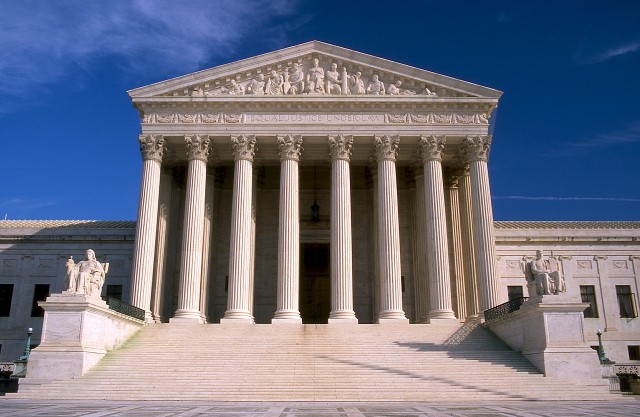
CARERS Act protects medical marijuana patients, expands research.
By M. Martin Hine
This article originally appeared on OPEDNEWS.com, April 20th 2015
Last week, Georgia Governor Deal enjoyed the applause of cannabis refugees when he signed a new medical marijuana bill into law.
Mike Hopkins had reservations. “Right now, nothing in the state house…is going to get us home legally, so some action by the federal government would be most welcome,” said Hopkins, who represents one of at least 17 Georgia families that have moved to Colorado to access cannabidiol oil (CBD).
The new law allows registered patients and their caregivers to possess up to 20 fluid ounces of CBD oil, but they will have to get it somewhere outside of Georgia and commit a federal felony by bringing it home. It doesn’t matter that CBD oil won’t cause a person to “get high”.
The Georgia state law seems designed more for political showmanship than for patient advocacy.
It says anyone “who manufactures, distributes, dispenses, sells, or possesses with the intent to distribute the oil shall be guilty of a felony” punishable by up to 10 years in prison.
A few days before the Governor’s photo op, a news story highlighted Georgia families who are willing to break federal law to get the recently legalized drug. When a reporter asked a Drug Enforcement Agency (DEA) official whether patients complying with the Georgia law will be arrested when crossing state lines or detained at airports by TSA employees, the agent responded “I’m not going to get in the hypotheticals”.
Why should patients and their families be at risk?
The same week, Tennessee lawmakers also made a symbolic change to their law regarding medical marijuana. . The compassion was unanimous, with the Senate voting 26-0 to pass the bill, and the House voting 95-0. Unfortunately, the change will have little impact on the well-being of many patients who depend on cannabis for control of their symptoms.
According to Tennessee’s bill, “The cannabis oil must have been obtained legally in the United States and outside of this state, [and] the person must retain proof of the legal order or recommendation from the issuing state”.
This wording highlights the problem. How can the oil be “obtained legally in the United States” when federal law makes it impossible?
The federal government can punish patients who use the oil because cannabis is a Schedule 1 drug according to the DEA. The DEA has obstinately refused to reschedule cannabis into the less restrictive Schedule 2 category, and courts have deferred to them.
That’s why new federal legislation is needed to move cannabis into Schedule 2.
Although Schedule 2 drugs have a “high potential for abuse”, they have an accepted medical application and are much easier to obtain for purposes of important academic research. Moving cannabis to Schedule 2 keeps cannabis as a controlled substance, keeping recreational use illegal under federal law.
Several U.S. Senators and Representatives are co-sponsors of the Compassionate Access, Research Expansion and Respect States (CARERS) Act, Senate bill S 683 and House bill HR 1538.
The CARERS Act would allow patients, doctors and businesses in states that have already passed medical marijuana laws to participate in those programs without fear of federal prosecution.
The Act does 5 things:
It removes cannabidiol from the federal definition of marijuana.
It reschedules marijuana from Schedule 1 to Schedule 2.
It allows banking institutions to process transactions with legitimate state regulated cannabis based businesses.
It increases availability of marijuana for FDA approved research projects, and allows VA Medical Center doctors to advise and assist patients regarding use of medical marijuana in states where it is legal.
Marijuana research is currently hindered in the U.S. because of a process that requires scientists to go through an additional layer of review by the Public Health Service. There is only access to a single source of the drug, the National Institute on Drug Abuse (NIDA). The new law would result in the licensing of 3 additional sources of cannabis, reducing regulatory barriers to research.
23 states and the District of Columbia have legalized medical marijuana. Another dozen states have passed or are in the process of passing legislation regulating the use of cannabidiol oils.
The CARERS Act bills have now moved to the committee level in the U.S. Senate and House. Additional support is needed to help them emerge for a full vote.
If this issue matters to you, please join with the cannabis refugee families and encourage your elected federal officials in the Senate and House to sign on as additional co-sponsors.
____________________
Dr. Hine is a Tennessee physician who focuses on health promotion and wellness.

